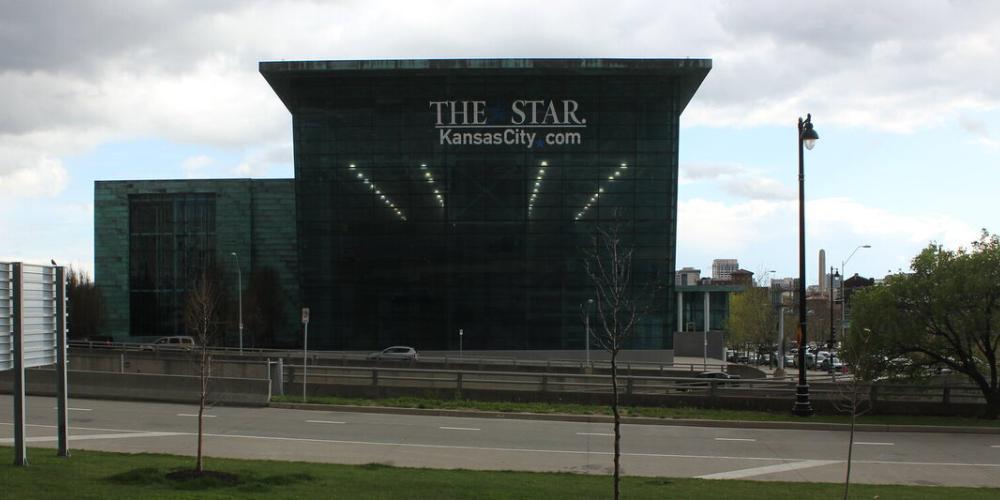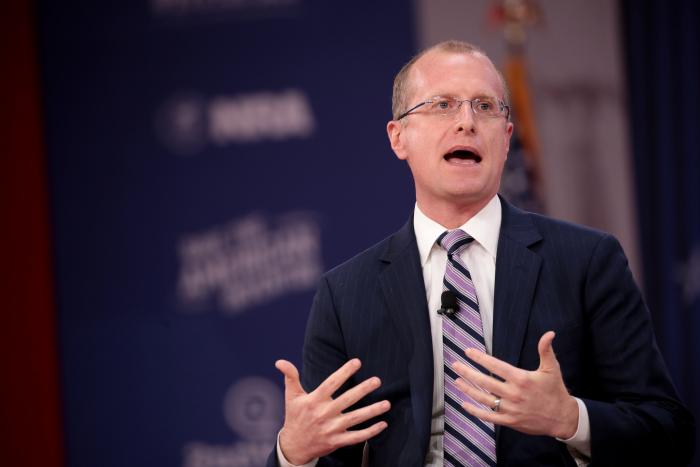The Kansas City Star's Apology Is Part of a Larger Racial Reckoning

The Kansas City Star apologized on Sunday for the paper’s history of anti-Black racism and published a series of articles that addressed how the paper “disenfranchised, ignored and scorned generations of Black Kansas Citians.”
Editor Mike Fannin wrote that Mará Rose Williams, a Black reporter who has worked at the Star for 22 years, suggested the paper examine its racist history. And he added that the reporters who researched this history — as well as that of its former sister paper, The Kansas City Times — “were frequently sickened by what they found — decades of coverage that depicted Black Kansas Citians as criminals living in a crime-laden world.”
The paper’s apology comes at the end of a year in which our nation and its institutions — following the public execution of George Floyd by the Minneapolis police last May — were forced to reckon with their history of anti-Black racism. This reckoning prompted many of our nation’s most influential news organizations to address the racism within their newsrooms. In September, The Los Angeles Times apologized for its own history of racism, which it detailed in a series of articles.
These apologies reveal that it’s never too late to correct the record or reconcile with the harm that these institutions have caused. In fact, it is critical. But the next question that needs to be addressed is this: What does repair look like?
Last October, the Black caucus at Free Press launched the Media 2070 project, which seeks to answer this very question. The project calls for working in coalition with Black journalists, artists, media-makers and activists — keepers of the story — to dream up media reparations for the Black community.
As part of its launch, Media 2070 released an essay that chronicles how anti-Black racism has always been a central part of our media system’s DNA. This dynamic dates back to colonial times, when newspapers took part in human trafficking by publishing ads for the sale or capture of enslaved Black people.
As Fannin wrote in his Sunday column, the paper’s founder, William Rockhill Nelson, “enthusiastically supported” efforts by a white businessman who was his protégé in promoting segregated communities. Fannin also told The Washington Post that former Star editor Roy Roberts, who led the paper during a period when it won multiple Pulitzer Prizes, had “zero interest” in covering the Black community. And Fannin noted that Roberts reportedly said “we don’t need stories about these people” when dismissing why the paper “largely” failed to cover the civil-rights movement.
Fannin wrote that it was the Black press — The Kansas City Call and Kansas City Sun — that covered the Black community.
The racial reckoning in newsrooms is happening at a time when there is growing support for the federal government to adopt policies that address the future of media and provide funding to save local journalism. Over the past decade, thousands of local journalists have been laid off due to the economic crisis in the newspaper industry — a trend that the COVID-19 pandemic has accelerated.
These apologies serve as a reminder that our nation’s media system has yet to be democratized: In fact, government policies have created today’s de-facto media-apartheid system. In 2017, Black people owned and controlled less than 1 percent of all full-power broadcast stations — just 12 stations in the entire country.
Meanwhile, a commercial, consolidated media industry still profits off of racism. The ascension of Donald Trump, a media creation, is but one example.
Outlets including The Kansas City Star have responded to the racial reckoning by pledging to diversify their newsrooms. The Star has also taken the additional step of forming an advisory board. But the industry has made this pledge to fully integrate its newsrooms at many points over the past half century yet has never fully committed to realizing this promise. Doing so would force these institutions to address their own racial hierarchies.
So where do we go from here? How do we repair the harm that media institutions and government policies have caused?
In 2021, the Media 2070 project will work in coalition to develop a policy platform that will begin to confront many of these questions in the struggle to transform our media system. We’re advocating for a world that has never before existed, one in which Black media-makers have the abundance of resources they need to create and control the distribution of their own narratives in service to the community — and not to corporate gatekeepers.
As we state in the Media 2070 essay: “media reparations are central to achieving a fully realized, multiracial democracy since our nation’s news media have historically weaponized narratives to further the political goals of protecting and preserving a white-racial hierarchy.”





